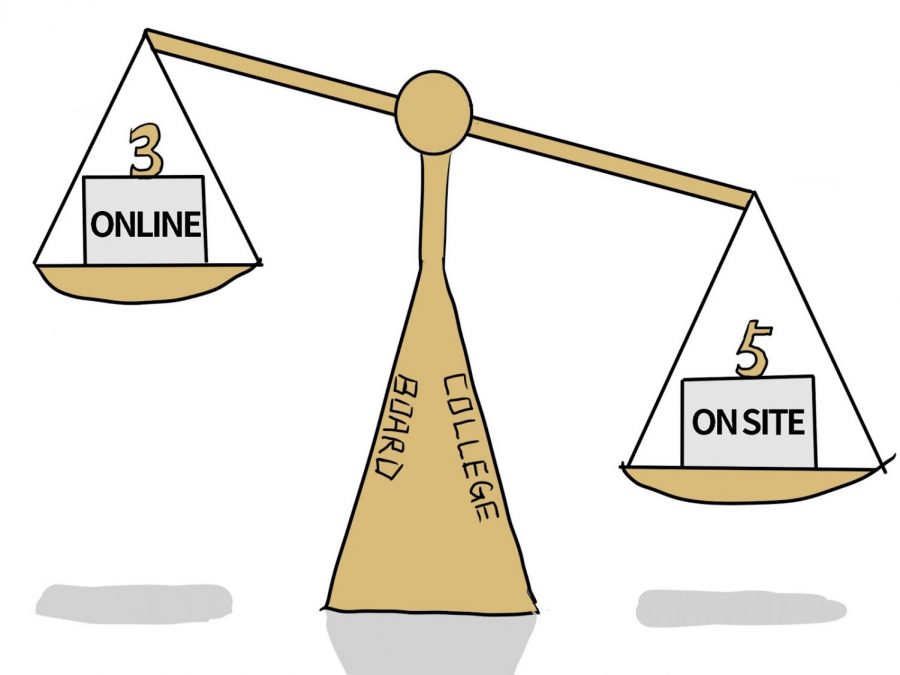Opinion: AP’s and Standardized Tests Should Not Be Online
August 24, 2020
In early 2020, the COVID-19 pandemic forced schools across the world and the U.S. to shut their doors and switch to virtual classes. Many large-scaled in-person administrations of standardized tests such as SATs and ACTs have been cancelled. College Board still hosted AP testing in May — not as the usual three-hour on-site exam, but as a 45-minute open-note test online. This was partly due to a survey of 18,000 AP students, among which 91% expressed a desire to take the AP exams online. However, this year’s AP exams proved to be ineffective and unfair.
Many tests, such as history and English, consisted of one or two free response questions. As if the normal multiple choice plus free response questions were not stressful enough, now a single question or two entirely decided a student’s score on the subject — which cover only a fraction of the AP courses’ material and fail to assess a student’s overall understanding.
Moreover, online AP testing deepened the technological divide that arose when the pandemic drove schools to distance learning. Not every student has a compatible computer, a reliable internet connection, and a quiet working environment to ensure that they are able to successfully take the online tests — clearly creating inequity in testing conditions. At the same time, the College Board made exam times the same to prevent cheating. This meant that many international students had to get up at midnight to take the exam.
Online AP exams were also plagued by technical difficulties that students encountered. The College Board has already been sued over AP exam submission issues. The lawsuit cited “reports of anywhere between 5% and 20% of examinees [who] were unable to submit their responses” within the first three days of exams (FairTest). In the second week of testing, the College Board provided a back-up submission option in which students could securely email their work to the College Board — but for security reasons, those who were unable to properly submit their responses in the first week had to reschedule their test for June.
Imagine the stress these students experienced when they worked painstakingly on a test and suddenly realised that the submit button wasn’t working, and the frustration they felt when they discovered that they had no choice but to retake the test.
“It was really hectic,” said junior Jocelyn Li, who took the AP World History test this May. “There were some cut-and-pasting problems, and the five minute window they gave us to submit wasn’t long enough.”
Thankfully, the College Board does not plan to administer the SAT tests online. “Taking [online SAT tests] would require three hours of uninterrupted, video-quality internet for each student, which can’t be guaranteed for all,” the College Board has stated.
ACT has been offering on-site online tests for years. They recently announced plans for remotely proctored testing, but at home tests will be offered in 2021 at the very earliest. Students can still take on-site SATs and ACTs in August and September, and many colleges and universities have announced that they would not require SAT or ACT scores for students applying to enter the 2021-2022 school year.
A better substitution for online AP tests could be an assigned project — similar to the AP Computer Science portfolio — given with a submission deadline. A project would be more holistic in assessing students’ understanding of course material than a two-question test, and much more accessible for many students as well.


